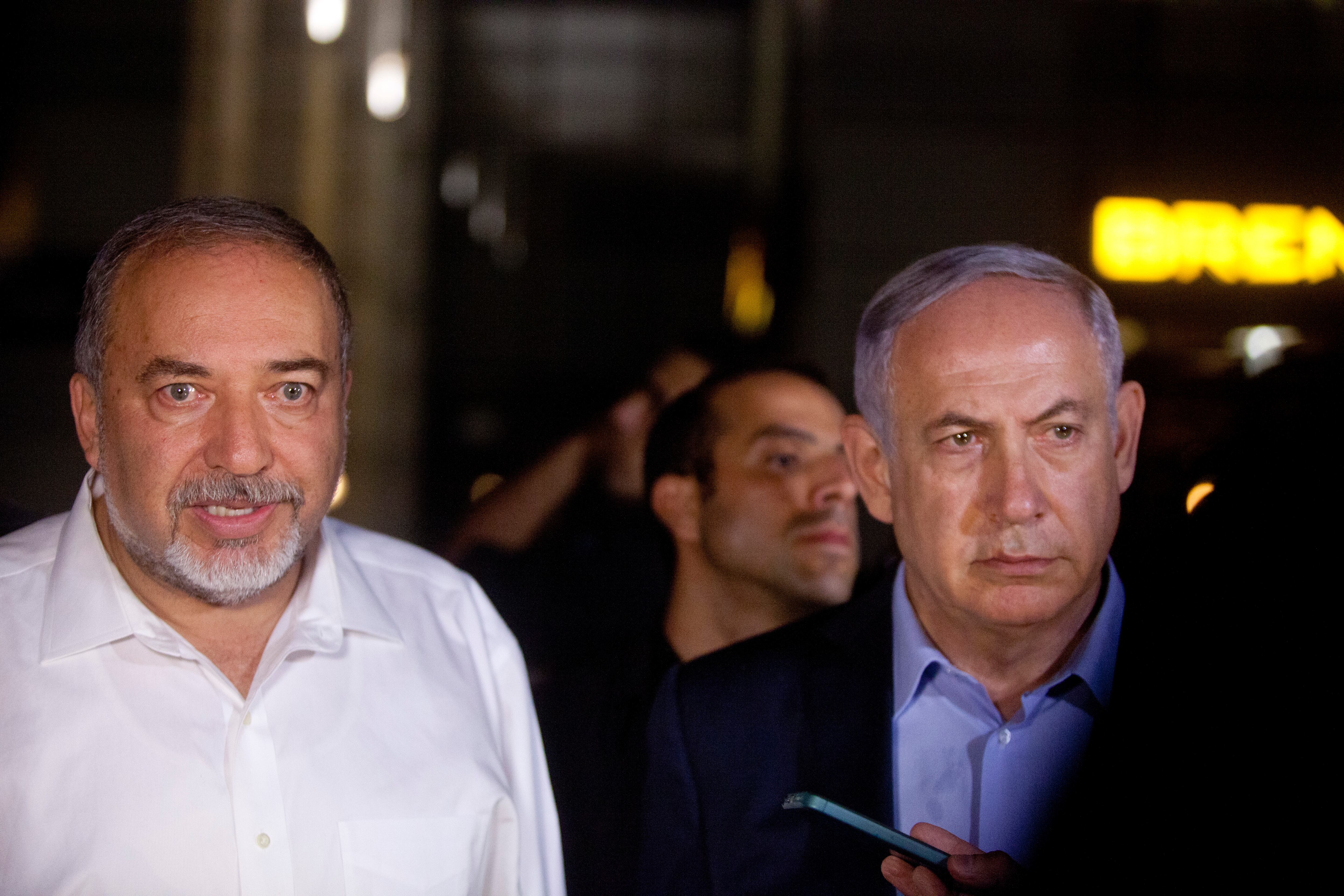The United States is doing an invaluable service to the West by resolutely confronting Iran with crippling economic sanctions. Though they might not admit it, or even realize it today, the nations of the free world — and the people of Iran themselves — will look back and thank this U.S. administration for the strategic clarity guiding its Iran policy.
The threat posed by Iran to Israel and to most of the Arab world is imminent. There is a reason Israel, Saudi Arabia, Egypt, the United Arab Emirates, Bahrain and other countries in the region support the tough U.S. policy on Iran: Iran's attempt to assert regional hegemony and spread its revolutionary ideology through terror proxies and massively building up its missile arsenal poses an acute danger.
An example of Iran's pursuit of strategic dominance is apparent in the growing convergence of its efforts to influence the Palestinian and Lebanese arenas. With over 100,000 missiles and rockets pointed at Israel from within Lebanese villages, and numerous installations for converting rockets to precision-guided missiles planted within civilian areas, Iran, through its proxy Hezbollah, has turned much of Lebanon into a fortified missile base, using the cover of civilians as a shield.
Under the direction of Quds Force leader Qassem Soleimani, Iranian operatives work closely with Hamas counterparts on Lebanese soil in order to synchronize a future attack on Israel from Lebanon and Gaza. This is exemplified in the close cooperation between the "Palestine" branch of the Quds Force, and Hamas representatives in Lebanon in training operatives, transferring funds, fostering military research and development, and planning terrorist attacks against Israeli targets.
Moreover, over the last decade, the Quds Force has provided hundreds of millions of dollars to Hamas and Islamic jihad for their military buildup in Gaza, money that is of course being drained away from Iran's citizens and the Iranian economy.
The Quds Force is similarly active in Iraq, Syria and Yemen, with the overarching goal of spreading northern and southern crescents of influence to bolster Iran's grip on the region. It is working particularly hard to duplicate the Lebanon model by entrenching itself militarily in Syria.
RELATED

But the Iranian threat is not restricted to the Middle East. In recent months and weeks, Israel has repeatedly conveyed real-time intelligence to European governments to thwart imminent terrorist attacks by Iranian operatives on European soil. Massive terrorist attacks, such as were carried out against U.S. Marines in Beirut in 1983 and against the Israeli Embassy and Jewish Community Center in Buenos Aires in 1992 and 1994, leave little doubt as to the lethality of Iran's capacity for large-scale acts of foreign terror.
The surface-to-surface missiles in Iran's arsenal include many that can already strike at European soil. Deepening its foothold in Syria could potentially add a westward radius of over 1,000 kilometers to the existing range, bringing additional parts of central Europe within striking distance.
Iran's nuclear weapons ambitions — displayed earlier this year in plain view for anyone cleareyed enough to see — are therefore as much a threat to Europe as to countries in the Middle East. Moreover, its repeated warnings to obstruct trade and energy supplies through the Strait of Hormuz is a matter of global, not just regional, concern.
Equally problematic is the keen interest with which other players in the international arena are watching the case of Iran. Disunity and muddled strategic thinking are always seen in only one way by the world's malign powers: as an opportunity. Fumbling the ball on Iran will have dire consequences down the road, which far exceed the threat of Iran itself.
Reflecting a growing awareness of the problem, in its July 2018 Brussels Summit Declaration, NATO noted its concern with Iran’s “intensified missile tests and the range and precision of its ballistic missiles” and by “Iran’s destabilizing activities in the wider Middle East region.”
Yet, strangely, many of the countries that jointly expressed this alarm concerning the seriousness of the Iranian threat oppose the policy of the one country, the United States, that is actually doing something about it.
This reflects a deeper problem among many Western countries that don't realize the gravity of the situation, evident most prominently in Europe, where the European Union is still doggedly striving to protect Iran from sanctions. This is a myopic policy that grasps neither the direct danger posed to Europe by Iran, nor to the international order which post-World War II peace has been based on.
Throughout history, many countries have erred in not realizing the early signals of a mounting threat, especially when the warning signs erupt elsewhere. Such was the case with the assassination of Archduke Franz Ferdinand in Sarajevo in 1914, and such was the case with Germany's successive overturning of post-World War I restrictions, in the Rhineland in 1936, and then in Austria and Munich in 1938. By the time the extent of the peril is realized, the threat can only be thwarted at much greater cost than before.
While history doesn’t exactly repeat itself, its patterns do often reverberate.
In this respect, of the many lessons bequeathed to us by the 20th century, one has proved itself repeatedly: It is that when the nations of the free world pool their energies, speak in unison and act in concert, no force of tyranny is powerful enough to withstand.
As we face Iran in the coming weeks and months, and look ahead at the challenges likely to face us in the future, this is a lesson worth remembering.
Avigdor Liberman served as Israel’s minister of defense from 2016-2018. He resigned Nov. 15 following an escalation with Gaza, charging that the Israeli government had “capitulated” to terror by accepting a cease-fire.








